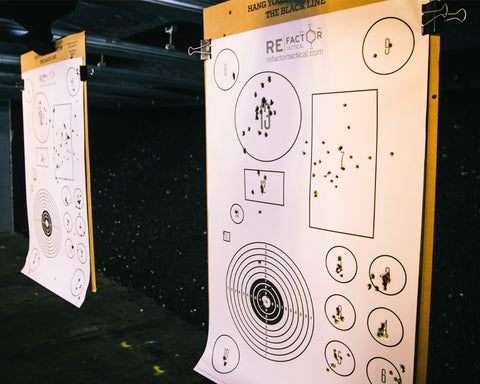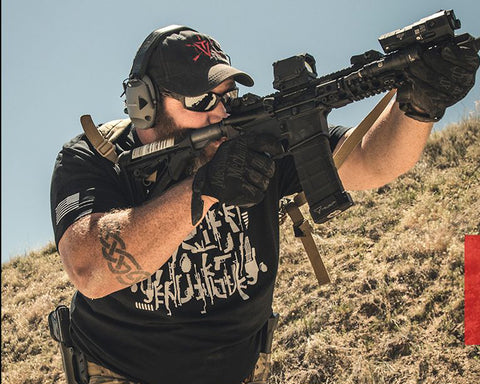What You Need To Know
- ✔ You don't have to make a down payment, but it will save you money on your VA loan
- ✔ Not all sellers will agree to this, but having the seller pay your closing costs will save you a lot of money
- ✔ Refinancing is a great way to save, and the VA won't let you do so unless it makes financial sense
VA Construction Loans are another great benefit to serving in the military. Unfortunately, not a lot of people know about this side of the VA. Fortunately for you, we do. So, keep reading to learn more about the VA Construction Loan.
New Home Construction
New home construction can seem like a daunting process. Unlike buying a move-in-ready home, building your own requires a lot of work with contractors. If you’ve ever had any experience with contractors, it’s rarely a fantastic process. Most of the time, about 80% of the people you call won’t call you back. Of those that do, about 60% of them won’t show up. The remainder will, but it’ll take them forever to get the job done, and when they do, about half of them do a piss poor job. At the end of it all, you’re left wondering, how do these people keep a job? Do they not like making money? Why is it so hard to get a good contractor, or any contractor for that matter? Unfortunately, that’s a question we can’t answer. Fortunately, we can help you find great lenders who are willing to help you through a regular VA Home loan process, such as Quicken Loans, which’s well versed in the VA home buying process.
If, of course, you still want to build yourself a new home, what’s even better is, your problems don’t stop once you’ve found a contractor to contact you back. Now you have to worry about their qualifications. And most important, their insurance. Trust us, the last thing you want is for a contractor to come out, fall off your roof and sue you—it happens all the time. You’ve just spent a crapload of money on a new house or a house you’re building, and now you have to worry about legal fees and paying a contractor who was planning to fall off your roof before he got there. It may seem like something you only see on TV, but there’s a reason someone dreamt that up because it happens!
Next to all the contractors, making sure the contractors are protected and doing their job, you’ll have to worry about inspections. It’s not enough that you were able to get an electrician to your house; you’ll need that inspected. It’s not enough that you finally got someone to come out and put up four walls; you’ll need that inspected too. Now, we aren’t saying these are bad things. But, of course, you want your house inspected. If something was done wrong, you don’t want your house to fall apart or burn to the ground because it wasn’t fixed before moving in. If you were to move in without the inspections and something were to be less than superb because of the contractor, you’d be stuck with the problem and the bill to fix it. All we’re saying here is that it takes a lot of work to get a house built. From the blueprints to move-in day, you’re going to have some headaches. It won’t be a completely smooth process, and you might have days where you wish you had taken the easier path. If people actually did their jobs, it wouldn’t be as bad, but they don’t. No one has as much passion for your new home as you do, and you have to remember that and be prepared for the unexpected—from everyone you’re working with. If contractors aren’t someone you want to deal with and you’d rather forgo the entire home building process, there are great lenders who can still help you out, such as JG Wentworth, who knows the ins and outs of the VA Home Loan process.
How much does it Cost to Build a House?
People often ask the question, how much does it cost to build a house? That’s not a question that can be answered easily. When you build a home, the cost is going to depend on several factors. How much is the housing market, what season is it, how much are materials right now, where do you want to build the house, will you be using top-grade materials, how big is the house going to be? If you can answer those questions, then you have to worry about the land. How much land do you want, what type of land are you looking to buy, where are you buying the land at? Buying land that’s next to the lake is much more expensive than buying unchartered land with rocks and trees so thick you couldn’t see two feet in. You also have to consider how hard it will be to break land. While untouched land may be cheaper, it’s definitely much more expensive to work with. If you pick a place up in the mountains, it’s going to be more expensive than picking a flat area that is easily accessible to construction crews and equipment.
Somehow, even with all the extra work, people still look to build their own houses, despite the cost and aggravation. Why? Rarely does a home have absolutely everything you want, down to the intricate details. You can customize your new home, and to some people, that’s worth it. Of course, if you’re not looking to build a home, you can always go through lenders like Veteran’s United, who will help get you through the VA Home Loan process without all the hassle.
Home Advisor estimates that it cost anywhere from $149,044-$430,418 to build a house in 2018. But, apparently, some people have built homes for as low as $13,000 and as high as $750,000. With a price gap like this, it’s hard to give a good estimate as to what your home’s construction would cost. But, there are also great tools, such as this cost building calculator, out there which can give you a rough estimate based on the grade of materials you plan to use, how big you’re planning for your house to be, and what state and county you live in. Just remember, this doesn’t include the cost of your land. If that’s scaring you, you can always look at buying a house that’s move-in ready by talking to one of our top-rated VA Home Loan providers, like Rocket Mortgage.
VA Construction Loan
A VA Construction Loan works similarly to that of the standard VA Home Loan. You don’t have to pay any money down. But, what makes the VA Construction Loan that much better, your lack of payment during the construction process. With a VA Construction Loan, you don’t pay anything until the day your house is move-in-ready. You don’t have to pay anything to the contractors. You don’t have to pay anything down on the land—if you’re buying it simultaneously—which means you’re not paying to not live in a house. This is great for people who may already own a home. Because who wants to pay a mortgage, or even rent, at the same time as you’re paying for a house to be built. That’s a good way to stretch your finances thin. Plus, the ability to roll everything into one payment is awesome! Land, house, and construction are all paid through your mortgage payment. If you’re dealing with a lender who doesn’t do VA Construction Loans, like Lending Tree, they can still help you get through a standard VA Home Loan process, especially if you’ve already started with a short-term construction loan. NASB is another great lender to look at if you’re worried about the process of building a home.
So, what exactly do you have to do to get a VA Construction Loan? Well, first, you need to have a licensed and insured builder. The builder also has to be an approved builder from the VA. Don’t worry; this isn’t very hard to deal with. You may be in a location that doesn’t have any VA-approved builders. All they have to do is submit an application to the VA, simple as that. You can also look at the VA’s website here to find out if your builder is VA approved.
It’s also important that you know you can’t physically build the house on your own. While this may be tempting, the VA won’t allow it—even if it was going to save you money. You have to hire a certified builder, that isn’t you, because watching the DIY Network every Saturday in your underwear doesn’t make you a qualified builder. If that turns you off, you can always look at buying a move-in-ready house through Cross Country, which can help you with a traditional VA Home Loan.
To start your process, after you’ve nailed down a licensed and insured builder who the VA approves, you and the builder must submit a plan and specs for the home you intend to build. Remember, you can’t overbuild—well, you can, we just don’t advise this. If your house is designed for the area, you won’t have any issues. But, say you want to build a mansion-style home amongst a bunch of single-family homes; you might have to pay a down payment because you’re overbuilding for the area.
Once you start the application, it will take between 40-60 days for the VA to process your request.
VA Construction Loan Lenders
After you’ve gotten a lot of estimates and decided, yes, you want to build your own home, you’ll need to find a lender. If you’ve served in the military and qualify for a VA Home Loan, you’ll also qualify for a VA Construction Loan. Lenders typically call this the 1x close VA construction loan.
Unfortunately, the Internet is filled with a lot of articles saying it’s near impossible to find a lender willing to make no money down VA construction loans. While this has some truth behind it, it’s definitely not an impossible feat. In fact, as the housing market has improved, more and more lenders are getting on board for this type of loan. So, when you do your research, look at the date of your article. Some of them are either outdated or using outdated sources. Now, there are far fewer lenders who offer this style of VA loan compared to a standard VA Home Loan, but it is something some lenders offer. If they don’t, there are lenders who will have you make a down payment on the construction, and once it’s complete, will roll your fees into a VA loan. Below is a list of three known companies that offer a true, zero-down VA Construction Loan, so you don’t have to worry about making payments before or during the building process.
Security America Mortgage
- Up to 100% financing
- Land, construction, and mortgage rolled into a single loan
- One time close – eliminate the risk of losing qualification during construction
- Loan soft costs and construction interest are rolled into the loan
- No payments during construction
American Financial Resources
- Provides construction financing, lot purchase, and permanent loan
- Single closing reduces closing costs and paperwork
- Permanent portion of the loan approved before construction begins
- Construction portion also underwritten and approved
- No payments due during construction
- No requalification once construction is complete
- 100% financing through VA (funding fee may be financed into the loan)
- Interest rate protected during construction
- 15 year and 30 year fixed term options
- 620 minimum qualifying credit score
- No geographical restrictions
- One unit stick-built house, new manufactured, multi-wide housing, modular homes
- Primary residence only
VA Nationwide Home Loans
- One-Time Close MANUFACTURED HOMES-Brand New Double Wide Homes Eligible Up To 100% On VA & USDA, & Up to 96.5% FHA.
- One-Time Close MODULAR HOMES– Viewed the same as Site Built Homes, Eligible on All FHA, VA, & USDA Loan Programs.
- One-Time Close SITE BUILT HOMES– Up To 100% For Veterans on All VA Programs, Up To 100% USDA Eligible Locations, & Up To 96.5% FHA Purchase.
There are more lenders out there, but these are some of the bigger known companies.
VA Home Loans
If you’re not looking to build a home, but you’re a qualifying military member, veteran, or spouse, you may still want to buy your own home using the VA. If this is you, there’s definitely nothing wrong with that. A traditional VA Home Loan comes with no down payment. Yes, you still have to pay the funding fee—unless you’re exempt—but you’ll save a lot of money in initial costs and be able to move in much sooner because you don’t have to save up 20% to buy the house.
Be aware; you could be expected to make a down payment in cases where your home costs more than the county’s loan limit, as set by the VA. If this is your second home, you could also potentially make a down payment if the combination of the first and second home exceeds the county’s loan limit. Likewise, if you were to purchase a home where the appraised value is less than the cost of the home, you’ll have to make a down payment. Your best option here is to try and get the owners to sell at a lower price or to look at buying a different house that falls within the limits. You can read more about loan limits here.
VA Home Improvement Loans
If you want to purchase a home that’s less than stellar, you can get a VA Home Improvement Loan combined with a traditional VA Home Loan. This way, you can fix your house to the standards without having to pay for it upfront. Your lender will simply roll the costs of your improvements into a traditional VA loan. You can read more about VA Home Improvement Loans here. However, keep in mind that you’ll have to provide the VA with a list of what you’re planning to fix, who will fix it, and how much it is going to cost. If the combined cost of the house and renovations are more than the county’s loan limit, you will most likely have to make a down payment.
VA Energy Efficient Upgrades
If you plan to make some energy-efficient upgrades, the VA will authorize up to $6,000 with a qualifying lender. If you need more than $6,000 to make these upgrades, you can request it through your lender, and the VA might approve it, but it isn’t easy to get approved for more than $6,000. Keep in mind; this is different from a home improvement loan.
VA Funding Fee
No matter what kind of loan you choose to use with the VA, you’re going to have to pay a funding fee. This is a fee that’s paid at closing. This fee can be rolled into your financing, but it will be there. This fee makes sure the VA can continue to offer no-money-down loan options for future generations. However, some qualifying members are exempt from this fee.
VA Funding Fee Exemptions
If you have a disability rating from the VA, you qualify for a funding fee exemption. In fact, if you decide to pay for a second home, you will be exempt from that funding fee too. You must have your rating and show proof during your home purchase; otherwise, you will not be exempt and will be required to pay the funding fee. You don’t even need a high disability rating; 10% is enough to qualify for this exemption. You can read more about funding fee exemptions here.
If you want to know why a VA Loan is better than a traditional loan, click here.
VA Home Loan Guide
No matter what type of home loan you’re planning to use, it requires extensive knowledge of how the process works if you want to get the best deal. You can read more about the different types of VA Home Loans here. Just because you’re a qualifying military member, veteran, or spouse doesn’t mean you have all the answers. You may be left asking, is a VA Home Loan right for me? What type of VA loan am I looking for, and how does it work? If you’re left with a lot of questions like these, you can read our VA Home Loan Guide here, where we not only list the top lenders of 2018 and why they’re the top lenders but how to start the VA Home Loan process from start to finish.
Table of Contents
- What You Need To Know
- Top VA Lenders
- New Home Construction
- How much does it Cost to Build a House?
- VA Construction Loan
- VA Construction Loan Lenders
- VA Home Loans
- VA Home Improvement Loans
- VA Energy Efficient Upgrades
- VA Funding Fee
- VA Funding Fee Exemptions
- VA Home Loan Guide
- Veterans United
- Quicken Loans
- J.G. Wentworth
- Lending Tree
- NASB
Recent Posts
- Unlock the Freedom to Explore with Faxon Outdoors’ ICON Series Waterproof Duffels & Backpacks
- AR-15 Stripped Upper Receiver Build | Parts, Tools, and Tips
- Building the Ultimate MACV-SOG CAR-15: A Step-by-Step Guide
- Best Bolt Carrier Groups (BCG) For Your AR-15
- Police Trade In Guns For Sale | Pistols, Shotguns, Rifles
- Best AR-10 Barrels | 308 Winchester and 6.5 Creedmoor
- Ultimate Guide to AR-15 Barrel Profiles: Choose the Right One
- Best Guns For Home Defense
- 8.6 Blackout vs 300 Blackout
- What Makes The M16 Rifle So Great?







Leave a Reply
Your email address will not be published. Required fields are marked *